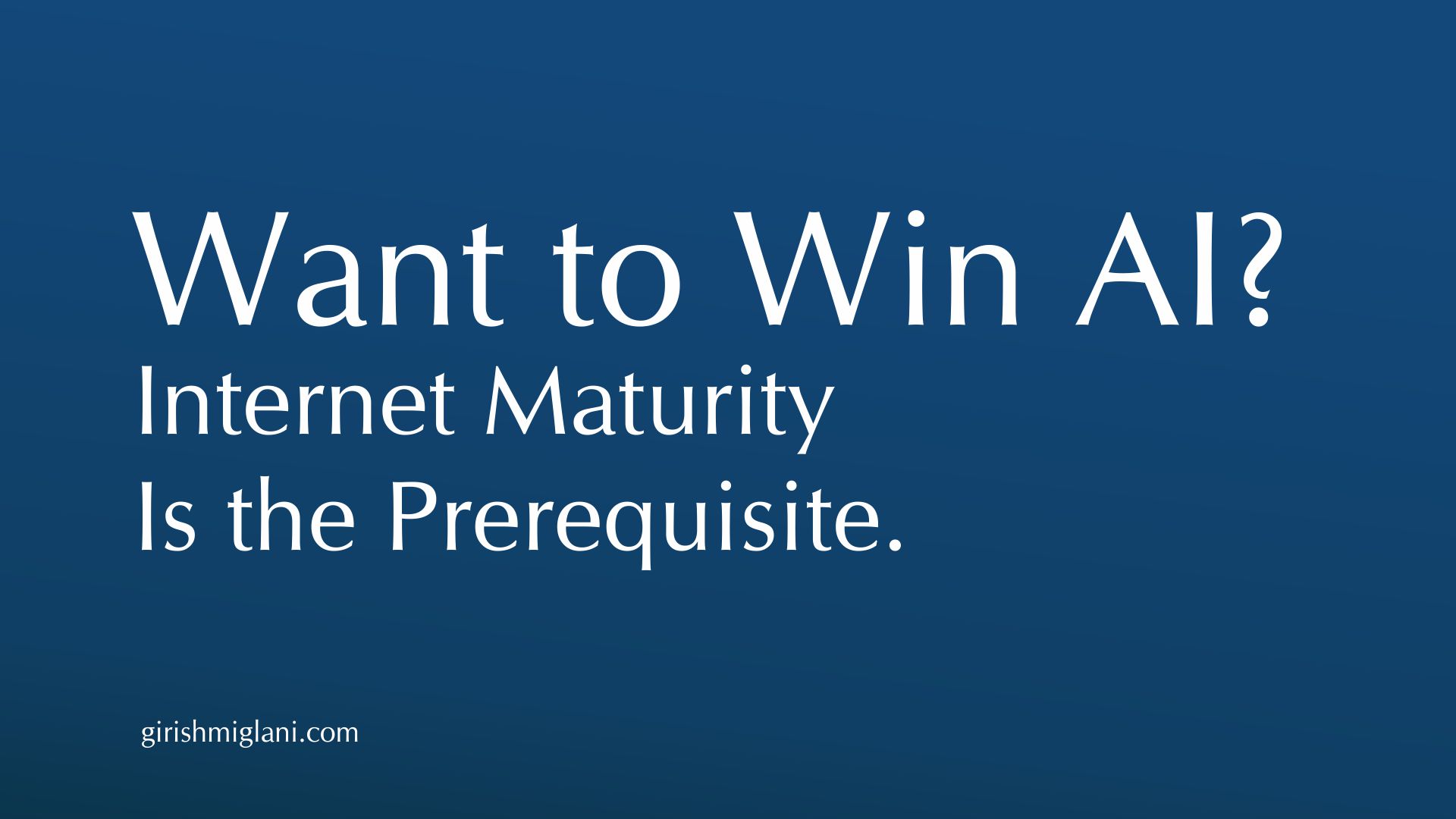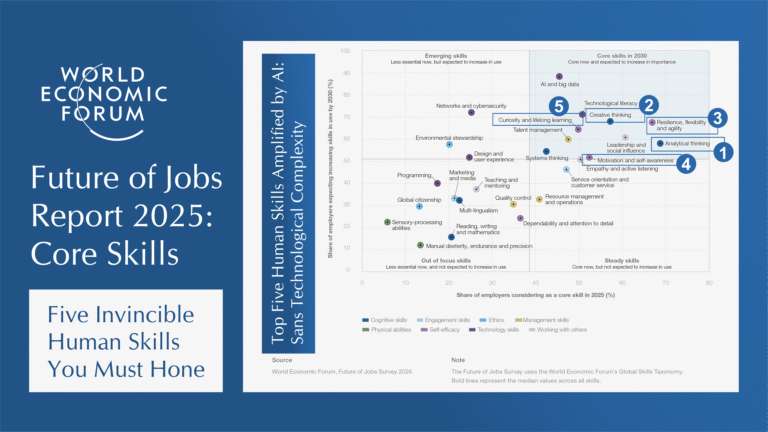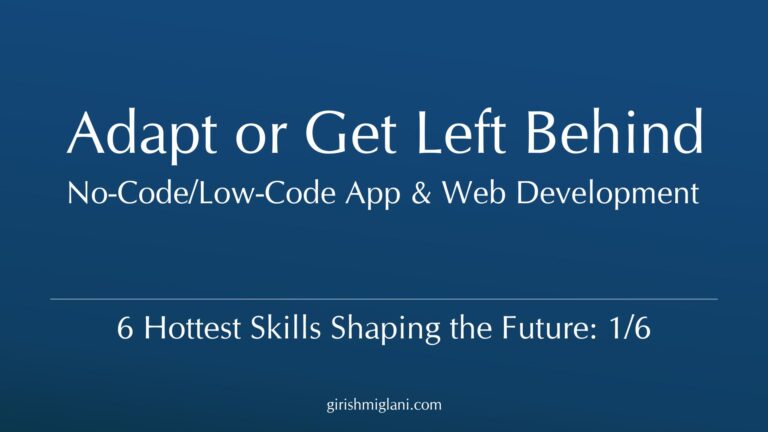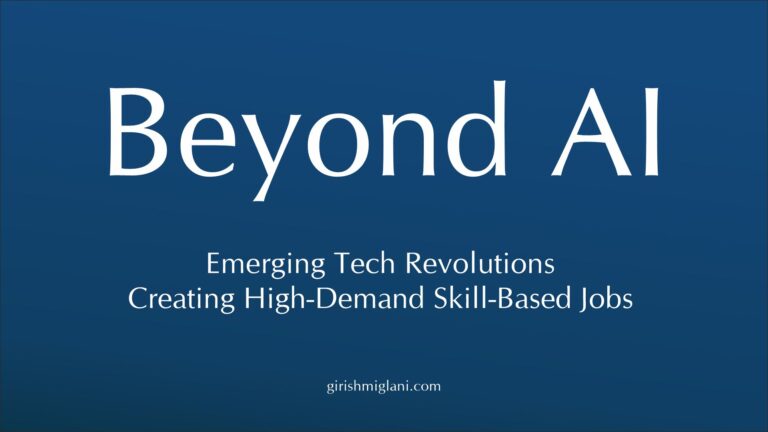Want to Win AI
Internet Maturity Is the Prerequisite
Ever since the Internet became a space where users could actively contribute — through blogs, photos, videos, opinions, and tools — there’s been one rarely discussed silent prerequisite: Internet Maturity.
In India, this critical issue was pioneered by iMature.com.
This isn’t just about digital literacy. It’s about knowing how to engage wisely, create responsibly, and navigate safely and confidently in the digital world. My associate platforms, imature.com and Humans Winning AI, have been working deeply on this foundation, especially for children and young learners, preparing them to use the internet and to understand its power, risks, and responsibilities.
Now, as we transition into the era of Artificial Intelligence, that foundation becomes even more critical. AI is not just another wave of technology. It’s defying traditional ways of learning, reshaping industries, and altering how we live and work. It has become the new literacy.
And to survive and thrive in this new world, we need four human but timeless qualities:
Creativity. Collaboration. Communication. Critical Thinking.
When you understand these two pillars — Internet Maturity and 21st-century human skills — you can truly begin your journey to becoming AI-ready.
And the first step here is to understand what AI is.
Lately, an extremely casual simplification of AI’s significance has become prevalent, and even the learned people agree with it, but to me, it’s not just casual, but criminal.
Not AI, but someone who learns AI will take your job?
The phrase “Not AI, but someone who learns AI will take your job” has gone viral, and for good reason. But the truth is starker and structural.
It’s not someone taking your job.
It’s — one person managing an AI system that does the job of 10, 50, or even 100 people.
Let that sink in. It isn’t fearmongering. It is your wake-up call.
AI is not a tool. It’s a leverage engine.
Recent research shows that AI isn’t just a tool that automates repetitive tasks. It is increasingly capable of handling complex, knowledge-based work, from legal analysis to content creation to financial auditing [3], [5].
As a result, a single AI-literate manager can oversee operations that previously required entire departments.
This is the era of the operator-multiplier effect, where a handful of AI-skilled professionals manage and optimise systems that replace the work of entire teams.
The Great Retrenchment is Already Underway
Let’s look at some projections and data:
- World Economic Forum and McKinsey estimate up to 75 million jobs displaced globally by 2025, even as new jobs are created [1], [2], [18].
- Goldman Sachs projects that AI could automate two-thirds of all current occupations, affecting 300 million jobs globally [2].
- In Australia, modelling by the Social Policy Group warns that if AI adoption continues, a third of the workforce could be unemployed by 2030, beginning with routine jobs and moving into high-skill domains [3].
This is not limited to blue-collar or white-collar roles. Quietly, AI is transforming fields once thought to be “future-proof” – law, journalism, healthcare, design, and even education.
Productivity is Up. Headcounts Are Down.
AI supercharges productivity. But that doesn’t automatically mean more human employment. On the contrary:
- AI enables businesses to do more with fewer people.
- Automation platforms reduce the need for data entry, support staff, content teams, and even junior analysts.
- Tasks are completed faster, with fewer errors, and round the clock.
The equation is simple: Efficiency goes up. Human demand goes down.
But AI Also Creates New Roles, Right?
Yes, but that’s only half the story.
New roles are emerging:
→ AI trainers
→ Human-machine collaboration experts
→ Prompt engineers
→ Data and ethics consultants
But here’s the rub:
These roles are fewer in number and require different, often higher-order skill sets.
If large swathes of the workforce don’t reskill fast, they risk being left behind with no clear pathway to reentry [5].
Sector-Specific Shake-ups
Some industries are especially vulnerable:
- Manufacturing: Robotics + AI = leaner, automated production lines
- Customer service: Chatbots and voice AI are taking over L1 and L2 support
- Banking: AI in fraud detection, underwriting, and even customer advisory.
- Transportation: Autonomous driving is evolving fast, across logistics and personal travel
Meanwhile, other sectors will evolve, not shrink, especially those demanding creativity, empathy, and human judgment.
So What Should We Really Say?
It’s time to dismiss the oversimplified warning:
“Someone who learns AI will take your job.”
Here’s a more accurate version:
“Someone who learns AI will manage the system that replaces what your entire team used to do.”
And if you don’t build proficiency in AI, systems thinking, and core human skills, you won’t just risk replacement, you’ll risk irrelevance.
AI Readiness Is a Personal and Societal Mandate
Being AI-ready is not about chasing the latest tools or becoming a coder.
It’s about understanding:
- How AI systems work
- Where human judgment still matters
- And how to stay valuable when machines get smarter
It’s about nurturing Internet Maturity, embracing lifelong learning, and strengthening your grip on critical thinking, communication, creativity, and collaboration.
The future belongs to those who prepare consciously, adapt quickly, and contribute uniquely.





